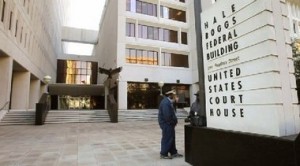North Highlands, Calif. (May 16, 2011)
By Michael Cohn, Accounting Today
Roni Deutch, who heavily advertised her tax problem resolution services on television, has closed her law firm and surrendered her legal license after a California judge froze her assets.
Deutch was sued last August by the California Attorney General for $34 million, charging her with swindling thousands of people who came to her for help with fixing their tax problems with the Internal Revenue Service (see California AG Sues ‘Tax Lady’ Roni Deutch for $34M). Last month, a California judge froze her assets after the Attorney General asked the court to hold her in contempt for shredding millions of documents and diverting hundreds of thousands of dollars in funds from her clients.
The State Bar of California said Thursday that it has initiated disciplinary proceedings against her. Deutch held a press conference last Thursday at the headquarters of her law firm in North Highlands, Calif., to announce the closure of her firm and her financial difficulties, but sounded a note of defiance.
“I am letting you know right now that I am turning in my state bar license after 20 years,” she said. “So I say this to you, State Bar of California, ‘Are you going to come to my building and help my 4,000 active clients? Are you going to do that, State Bar of California? Will you now come and pick up my 45,000 debt files? Will you come and pick those up? Do you really care about my clients, State Bar of California? Never disciplined me for 20 years, approving my policies, practices and procedures. Are you now going to show up and help my clients? The last time I checked, you were unwilling to help any of my clients unless I was dead or in a mental hospital. Those were the only conditions that you were going to show up and help my clients, dead or in a mental hospital.’”
Deutch said her firm had run out of money and owed $10 million. She said she personally owed $5 million and did not have enough money to defend herself in court, according to the Sacramento Bee. Her own attorney has asked to be removed from the case because he hasn’t been paid.





Follow Us!